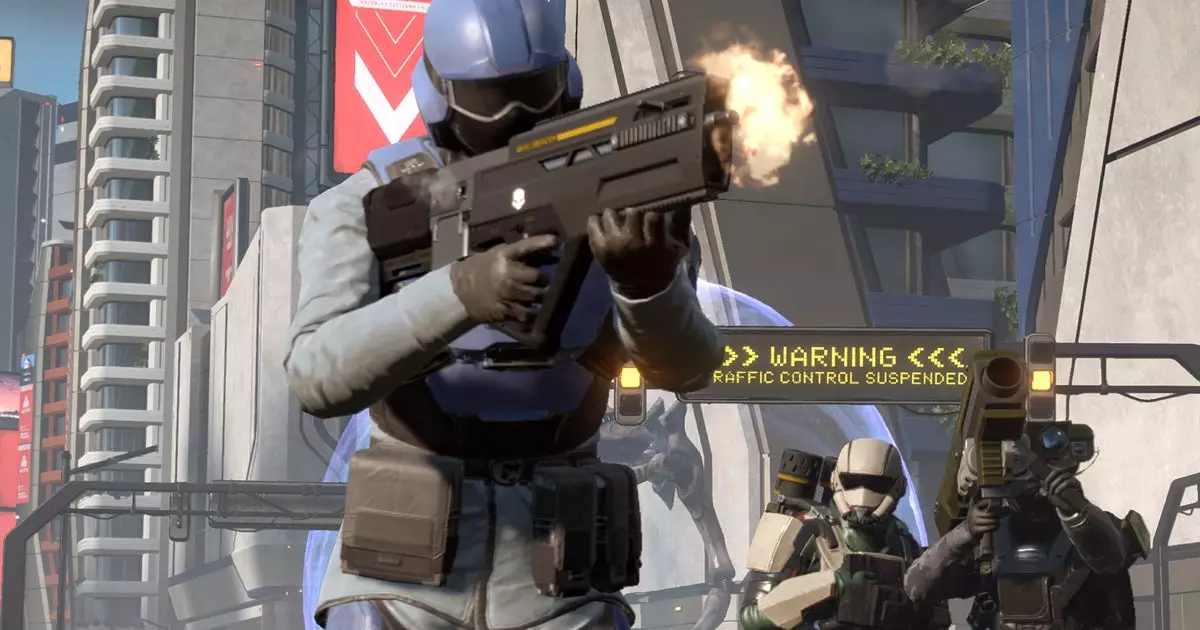The recent climax of the Super Earth conflict in Helldivers 2 marks not just a gaming milestone, but a captivating testament to the strength of collective human effort across borders. With the Heart of Democracy update, the game has unfolded a narrative where players rallied to defend their virtual home against a formidable Illuminate invasion. This dynamic culminated in a victory for the players, with Equality-On-Sea—an innovative representation of Shanghai—emerging as a shining beacon amidst chaos. The aftermath did not just affect gamer morale but also sparked real-life discussions, bridging the gap between virtual accomplishments and real-world recognition.
A Cultural Spotlight on Equality-On-Sea
The focus on Equality-On-Sea highlights a deeply layered narrative that resonates beyond the confines of the digital realm. When a segment about the game’s events aired on Kanka News’s Good Morning Shanghai, it not only celebrated a victorious campaign but also acknowledged the collaborative spirit between players from different backgrounds. The broadcast served as a cultural highlight, emphasizing how cooperative gameplay transcends linguistic barriers and fosters camaraderie among diverse gaming communities. Players, whether from China or abroad, showcased a unified front, demonstrating genuine solidarity in combating the alien threat that loomed over their beloved virtual city.
The Challenges of Gameplay Mechanics and Player Expectations
Despite the joy of victory, the defense of Equality-On-Sea was marred by controversy, primarily triggered by players feeling disenfranchised due to game mechanics. The issue arose when many gamers were unable to raise the city’s defense percentage to a full 100%. This dissatisfaction led to some players review bombing the game, expressing their frustration at what they perceived as a lack of agency in their gameplay. Differences in expectations regarding the outcome fueled a narrative where players felt misled, suggesting a breakdown in communication between developers and the community. Arrowhead, the game’s developer, found itself at a crossroads, caught between ambitious design and player feedback.
The Dynamics of Miscommunication
An intriguing aspect of this situation was the alleged translation error affecting the game’s Chinese version, which heightened tensions. Misunderstandings surrounding how to liberate Equality-On-Sea contributed to players’ frustrations as they struggled to adapt their strategies in a constantly evolving conflict. This scenario testifies to how nuanced the relationship between game design and player experience can be, especially in a cross-cultural setting. It illustrates that while gaming can unify, it can also inadvertently create divisions if players feel their efforts are futile or misunderstood.
A Celebration of Collaborative Gaming
Against the backdrop of heartache and victory, what stands out is the unity exemplified by gamers from diverse backgrounds. Despite the technical challenges, the underlying message remains one of resilience and cooperation. As players from different countries fought for a singular goal, their shared experience transcended any animosities, paving the way for a new narrative: one that values teamwork and cultural appreciation. The vibrant community surrounding Helldivers 2 is a reflection of the potential that gaming holds as a universal language, capable of fostering connections that span geographic and cultural divides. In an era where collaboration is essential, the dedication to saving Equality-On-Sea serves as an inspiring allegory for unity in a complex world.

